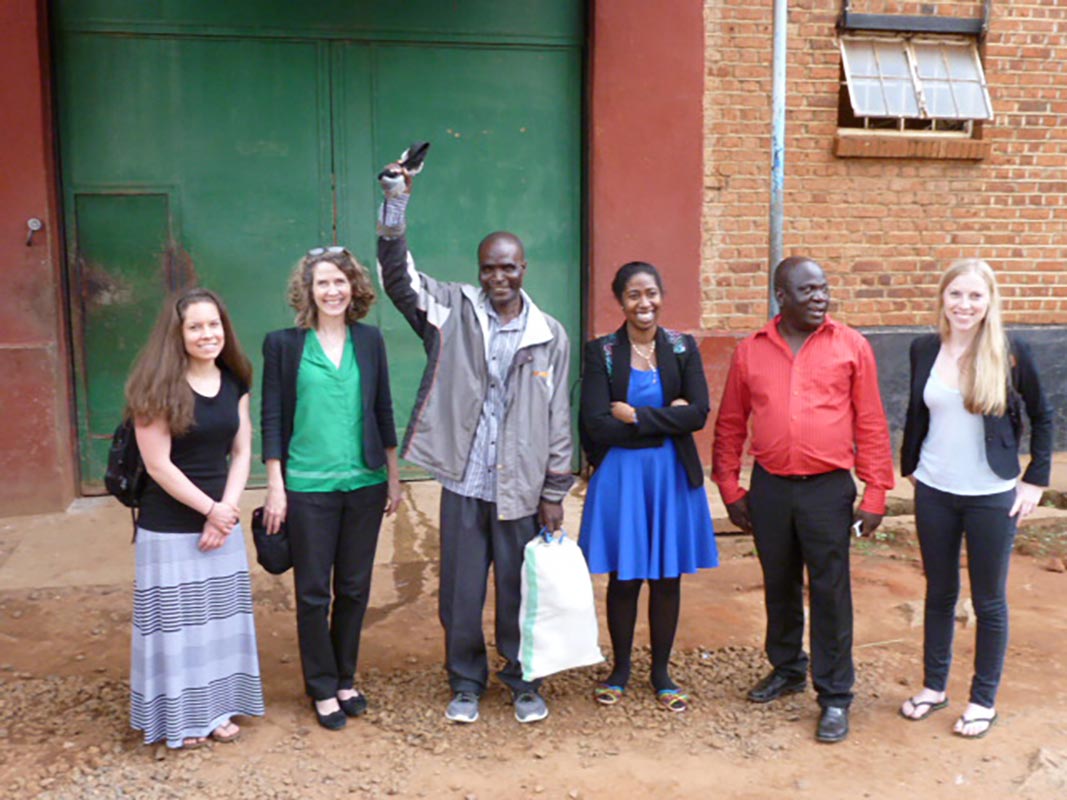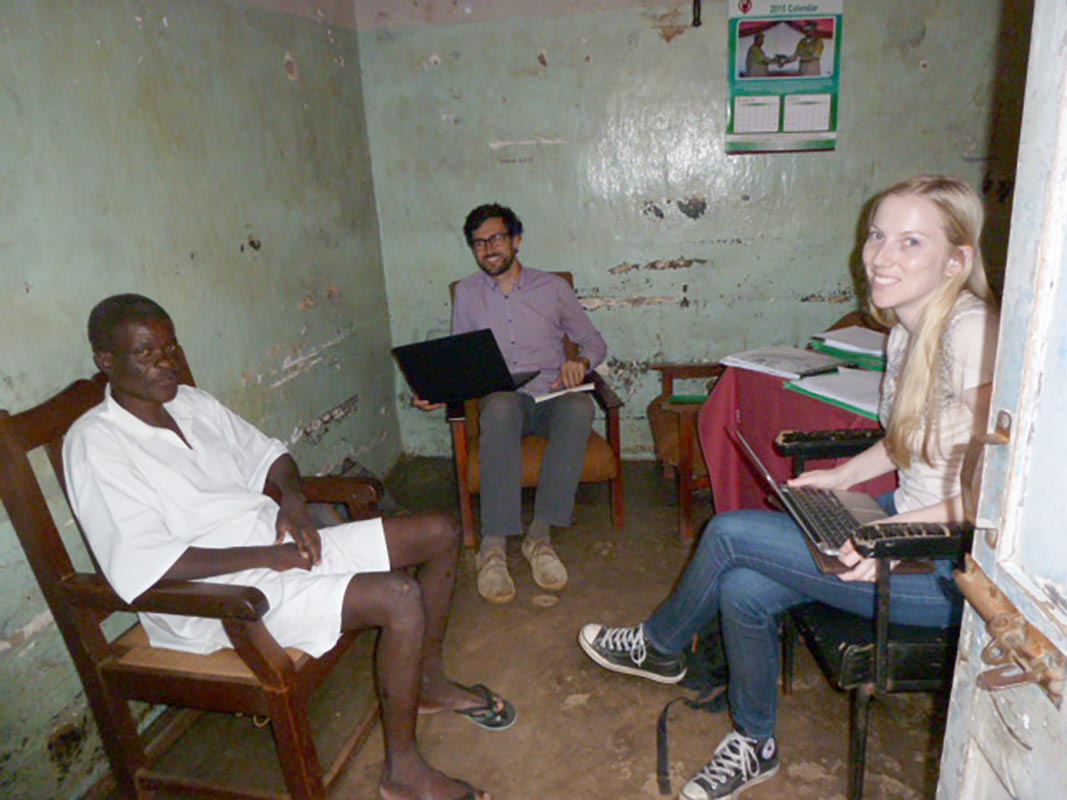Law students help reverse Malawi death penalty sentence
By Bill Steele
After 19 years in a Malawi prison under threat of a death sentence, Abraham Galeta has been set free, thanks to the work of students in the International Human Rights Clinic at Cornell Law School. In the process, the students acquired valuable skills they might use in future criminal cases.
The young man had killed his stepfather, who had been in the act of viciously beating his mother to the point that she called out for help in fear for her life. He was convicted of murder and sentenced to death; in Malawi such sentences are often delayed.



Clinic students interviewed Galeta in prison. He had not spoken to a lawyer since his death sentence was imposed in 1996. Traveling to Galeta’s remote village, Malawi paralegals trained by Sandra Babcock, clinical professor of law, interviewed witnesses to bring out the extenuating circumstances.
They also interviewed village elders to establish that Galeta was of good character and would be accepted if he returned to the village. On the basis of this evidence, and drawing from both Malawian and international legal precedents, Cornell clinic students prepared pleadings for Malawi lawyers to submit to the country’s high court. Galeta’s sentence was reduced to a term of years, resulting in immediate release.
“We have achieved results because we work in collaboration with local partners, and we’re very humble about our contribution,” Babcock said. “It provides a really good example of how a U.S.-based university can collaborate in a way that is not intrusive.”
Malawi has an independent judiciary and a small corps of well-trained lawyers, Babcock said, but it is one of the poorest countries in the world. It has fewer than 20 public defenders nationwide, and they have limited support.
“What we can do is provide what we have at our disposal: students who have the time and access to legal resources,” Babcock explained.
In recent years students have reversed several other unjust convictions in Malawi. Since January the International Human Rights Clinic has been involved in 36 hearings, securing the release of 24 prisoners and commuting 12 to a term of years as an alternative to a death sentence.
In one case, a deranged man set fire to a building and burned to death, and three brothers who had gone in to rescue him were arrested because they were found at the scene. In another, a woman was accused of murder for killing her husband when he was beating her in a drunken rage. The status of women is a recurring issue, Babcock noted. Often, she said, a physical attack on a woman by a man might be reported as just a “quarrel.” Alcohol also is frequently involved, she added.
“The whole premise of this project is that you need to look at the whole person and the facts of the crime,” Babcock said, “and you take all those facts into account in deciding who should be released.”
The International Human Rights Clinic is a course Babcock teaches in the Law School. Her title “clinical professor” means that she leads students through real-world cases. She encourages students to take the course more than once, because each time around offers a different experience. Next year, the clinic will continue to work in Malawi and will add new challenges.
“We hope to expand the work to another country with the same problems because we’ve learned so much,” Babcock said. They also will examine women’s rights issues in Myanmar, she added.
Cornell also has clinics on LGBT rights, capital punishment, labor law and immigration, all led by professors with practical experience.
Media Contact
Get Cornell news delivered right to your inbox.
Subscribe